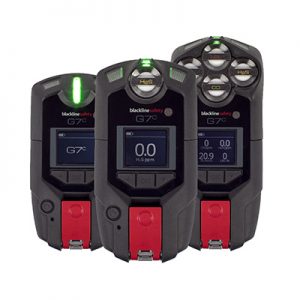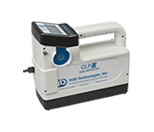If you work in an environment where one or more dangerous gases are present, nothing’s more important than being able to detect a worker’s exposure to these gases. Thankfully, gas detection equipment has become standard for workplaces such as manufacturing facilities, water treatment plants, and several other job sites where people are at risk of exposure. To ensure the best protection possible, a company needs to utilize the appropriate kinds of detectors for their facility. In order to help you distinguish between a fixed, personal, and portable gas detector, here are some things you should know.

Fixed Gas Detectors
Some facilities rely exclusively on fixed gas detectors, but many use a combination of fixed, portable, and personal. Fixed gas detectors are usually in place to protect a facility, or to monitor a particular section that is especially vulnerable to gas leaks. One of the principal benefits of these devices is they can be configured to respond to hazardous conditions. For instance, relays can be set up to transmit audio and visual alarms allowing workers to exit an area as quickly as possible until the leak can be repaired. Also, automated systems can be programmed to begin the process of clearing an area of dangerous gases. Vents, for example, can be automatically opened in the event of a leak, and exhaust fans activated. A downside to fixed detectors is it’s unlikely they can cover every inch of a facility, leaving workers vulnerable to undetected leaks.
Portable Detectors
To ensure that workers are protected at all times regardless of where they are on the worksite, personal or portable gas detection monitors are required. While there are essentially two types of detectors (portable and fixed), within the category of “portable” are personal detectors. Both types of portable monitors can be taken with workers wherever they go, so they can get live readouts of ambient gases and can be warned if conditions are unsafe.
What’s the Difference?
Personal gas monitors are usually smaller than portable ones. Extremely convenient, they can usually be attached to a lapel or clipped onto a belt. They generally run off of a single battery and are most often capable of detecting a single gas. If your work environment is prone to a single kind of dangerous gas (CO2, for instance), personal gas detectors might be most appropriate. If you want portable gas detection equipment that has more capabilities, then a portable gas leak detector is probably a better idea. Slightly larger, portable monitors are more complex and able to detect several different kinds of gases. Also, portable detectors are able to perform tasks that are beyond what you’ll find with most personal sensors. They’re easier to calibrate, and have access to more feedback and stored data than their smaller, less powerful counterparts. If you intend to ask more from your handheld gas monitors than a personal detector can provide, then outfitting your staff with portable gas detectors may be your best option.
Whether you’re looking for a fixed, personal, or portable gas detector for sale, contact the experts at DOD Technologies, Inc. Since 2003, we’ve been a leading distributor of gas detection monitors and solutions for businesses operating across a broad range of industries. Give us a call today at (815) 788-5200.







